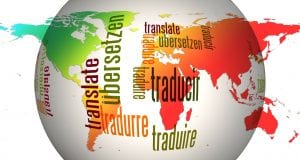Do your homework and perform a DIY or private background check of your prospective lawyer.
If you find yourself facing a legal matter of any kind, it’s essential to find a good lawyer to help you out. However, looking for one immediately prompts major concerns, notable of which is the client and lawyer’s first language. The language issue could become the first hindrance in some cases. For example, people who are non-English speakers or whose first language is not English might have a harder time communicating with any English-speaking court than native English speakers.
To bridge the language barrier, hiring the proper lawyer with the right language skills should be the top priority. Check out the following tips to help you find a good lawyer who can act as your authentic legal representative.
1. Check Sources Specifically for Multilingual Lawyers
The online world is filled with overwhelming information about the best lawyers in any area. However, only a few can speak two or more languages. Choosing someone who knows and understands your language will give you a great advantage when facing the court to undergo a trial.
Through your bilingual or multilingual attorney, you’ll be more confident to express yourself and assured that what you’ll be saying will be filled with relevance and under your best interest. For example, if you’re a Spanish speaker, you have to choose one of the best ‘abogados‘ who knows how to speak English and Spanish fluently.
Here’s how to find a bilingual or multilingual attorney:
- Consider Referrals: You probably know someone who knows a lawyer who speaks your language fluently. Ask your close friends and relatives if they can refer a good bilingual lawyer to you. It would be a bonus if this lawyer won the case.
- Use Language-specific Keywords on Search Engines: If you’re looking for a bilingual or multilingual lawyer who knows how to speak Spanish, use specific search strings that pertain to your language. For example, you can search for ‘abogados en Español‘ or ‘Spanish lawyer in Texas’ in search engines, like Yahoo, Bing, or Google. Using these keywords will direct you to the right website of the type of attorney you need.
- Check Social Media: Lawyers also have social media accounts to promote their legal services or law firms. Again, search using the relevant keywords to develop the best results on social media networks like Facebook or LinkedIn.
2. Do a DIY Background Check to Narrow Down Options
Do your homework and perform a DIY or private background check of your prospective lawyer. Choose a reputable lawyer with years of experience handling cases of people who speak the same language as yours. By doing so, you’ll be more confident that you’ll never have to explain yourself countless times for the lawyer to get your points.

Check the following tips to help narrow down your choices of prospective multilingual lawyers:
- Visit the law firm’s website and find out if there are testimonials from different races or diverse clients.
- Check the university or country where the lawyer obtained their law degree.
- Determine the lawyer’s previous places of practice, like areas where your native language is highly concentrated. For instance, lawyers who practice in Chinatowns have an increased likelihood of servicing Chinese-speaking clients in the area, having the relevant experience and expertise you can count on if you’re also Chinese.
3. Interview Prospects to Make A Final Decision
Once you have narrowed down your choices, perform an interview of each prospective bilingual lawyer you’re considering. Through a face-to-face or video chat interview, you’ll be able to gauge the expertise of the lawyer expressing themselves through your native language, as well as their relevant skills.
An interview with your prospective attorney will also test the following:
- Communication Skills: During the interview, you could assess the lawyer’s level of fluency both in English and your native language. You might encounter lawyers whose ethnicity is the same as yours, but they might hardly speak your native tongue because they didn’t grow up speaking it. Sometimes, you could also encounter lawyers who are polyglots and need not share the same ethnicity as yours, but they talk like a native speaker.
- Problem-solving Skills: Logical reasoning should be the top skill of any good lawyer. Ask open-ended or scenario-building questions to assess the problem-solving skills of your prospective lawyer.
- Negotiation Skills: Test if your lawyer wants the easy way out or if they want what’s truly best for you. Try to present your case, assess how the lawyer provides you legal options and similar scenarios or circumstances like your case, and see how the lawyer successfully resolves the case.
- Confidence Level: Interviewing the lawyer will test two confidence levels: the lawyer’s and yours. Both the lawyer and the client should be comfortable in expressing their thoughts and arguments to each other, especially when using a shared native tongue. See to it that the lawyer will ensure that all aspects of the case will be thoroughly reviewed and investigated as well.
Conclusion
You have just learned the essential tips when looking for a bilingual lawyer for your case. You can find native-speaking lawyers in your local area using specific search strings via search engines or social media networks. Don’t be shy to ask for referrals, too. Doing background checks and interviews is also crucial to ensure you’ll end up in the hands of a good lawyer who truly understands you and is willing to fight for your rights to prioritizes your best interests.


Join the conversation!